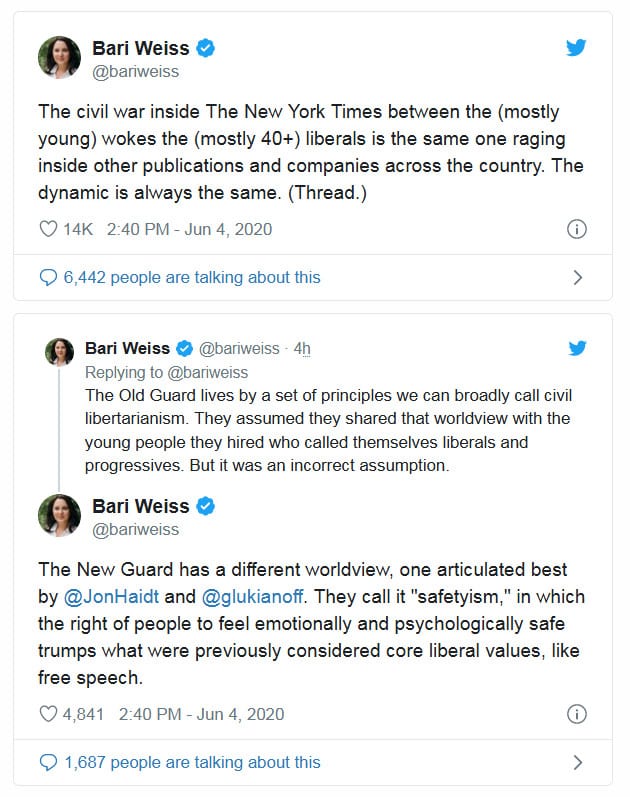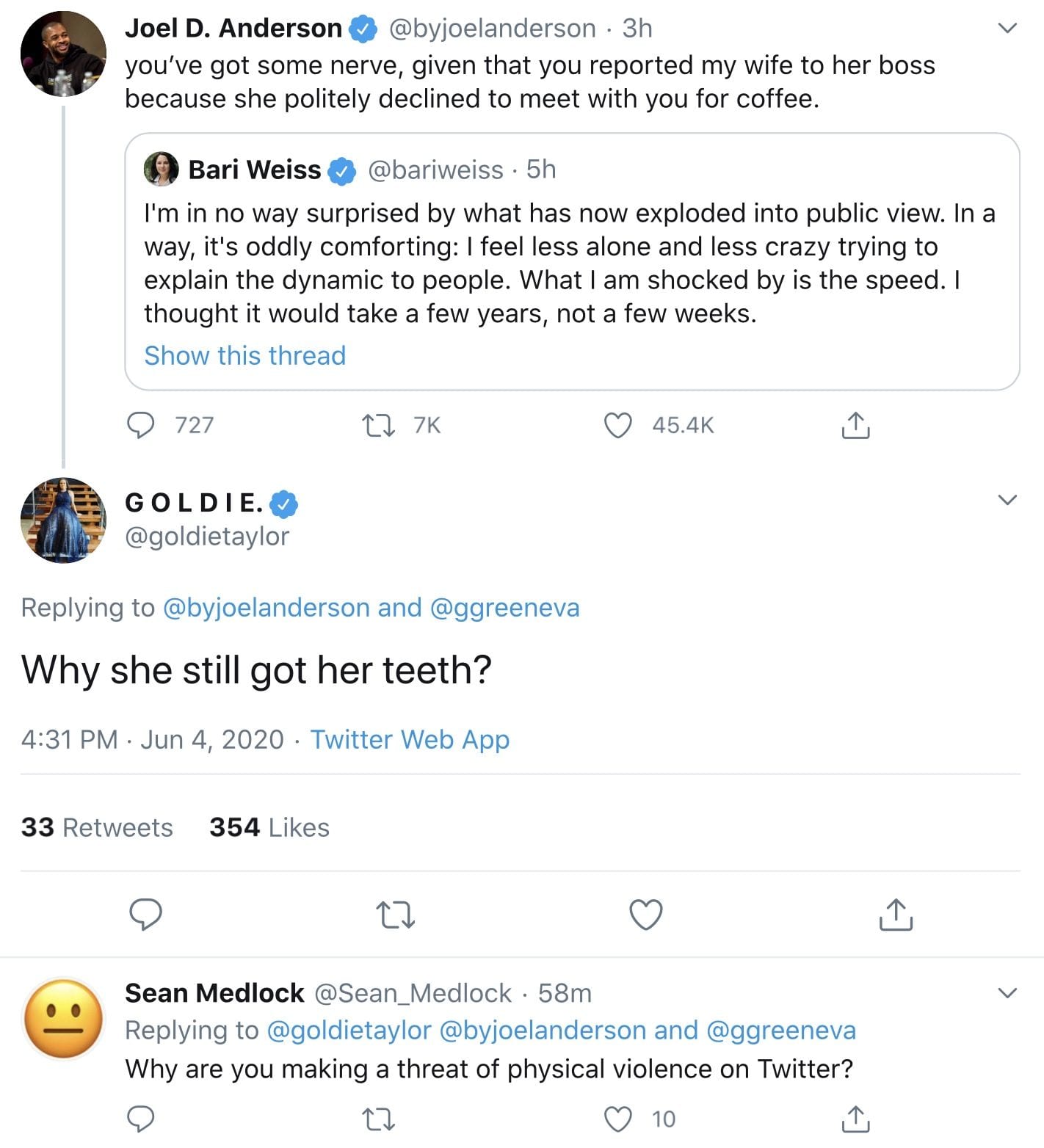THE NEW YORK TIMES AND THE VANGUARD OF THE INCOGNIZANT:
“One thing above all else will restore order to our streets,” wrote Sen. Tom Cotton, “an overwhelming show of force to disperse, detain, and ultimately deter lawbreakers.” The senator has advocated extraordinary measures involving the domestic deployment of uniformed soldiers for several days—as we’ve witnessed mass protests in American cities during the day and wanton violence, rioting, and looting by night. This exhortation is not new for him, but the venue in which it was placed—the New York Times opinion page—inspired a frenzied revolt from within the journalistic institution that published him. More remarkable, the aggrieved staffers and writers at the Times generally declined to issue a counterargument. They simply declared Cotton’s arguments anathema and sought to wield whatever power they could muster to see them banished.
One by one, New York Times staffers added their voices to a coordinated campaign of shame directed squarely at the paper’s management. “Running this puts Black [New York Times] staff in danger,” wrote technology reporter Taylor Lorenz, writers Caity Weaver and Jacey Fortin, climate reporter Hiroko Tabuchi, book critic Parul Sehgal, graphics assistant Simone Landon, reporter Katherine Rosman, styles desk editor Lindsey Underwood, culture writer Jenna Wortham, contributor Taffy Brodesser-Akner, and columnists Kara Swisher and Charlie Warzel. The News Guild of New York soon chimed in with a statement: “[Cotton’s] message undermines the journalistic work of our members, puts our black staff members in danger, promotes hate, and is likely to encourage further violence,” the Guild affirmed in what was billed as a “response to a clear threat to the health and safety of the journalists we represent.”
As a result of their staff’s meltdown over the Cotton op-ed, the New York Times, already drowning in a fantasy-land of alternately running pro-Soviet Union apologia and their anti-American founding “1619 Project” series, promises to narrow what they view as acceptable opinion even more. Or as Tina Lowe writes at the Washington Examiner, “New York Times employees can bully their bosses into submission — just don’t criticize a celebrity:”
A newspaper, beyond its moral purpose to tell the truth, is functionally a business. To turn a profit, it must balance journalistic integrity with revenue from subscribers and advertisers. Thus, it came as absolutely no surprise when the New York Times fired Alison Roman, the up-and-coming chef who irked professional celebrity Chrissy Teigen with a rude remark in an interview that was falsely smeared as racist and subsequently piled onto by Teigen.
* * * * * * * *
As you may recall from a long day ago, after the opinion page published a fairly straightforward op-ed from Sen. Tom Cotton, arguing to utilize the military in quelling protests — a position shared by the majority of Americans and 46% of people who voted for Hillary Clinton in 2016, mind you — several staff members instigated a civil war, all sharing the same copypasta bullying their bosses: “Running this puts Black @NYTimes staff in danger.”
* * * * * * *
Publishing the opinions of the Taliban wasn’t a bridge too far for the staff, and employees claiming that destroying property isn’t violence on national television isn’t a bridge too far for the management. But a sitting United States senator’s opinion that’s shared by the majority of the electorate is, and as a result, journalism will suffer in the future.
The bitter babies at the New York Times wanted less speech, and they got it. They’ll now publish fewer op-eds overall. There is a wholly illiberal war on the free press, and its primary aggressors aren’t in the White House or corrupt police stations. It’s being waged from within the inside.
Bari Weiss, one of the saner voices at the Times, responded to her colleagues’ collective primal scream in a Twitter thread earlier today:

Naturally, as this Mediaite headline notes: NY Times ‘Civil War’: Opinion Writer Bari Weiss Gets Buried By Colleagues for Tweeting Her Takes on Newsroom Friction After Cotton Op-Ed.
In 2015, Ashe Schow, then with the Washington Examiner wrote, “With all the attention being paid to college-aged social justice warriors and microagressions, one has to ask: What happens when all these delicate snowflakes enter the workforce?”
The Gray Lady is finding out, good and hard.
UPDATE: Daily Beast editor-at-large Goldie Taylor threatens violence against Weiss, in a since-deleted tweet:

As William F. Buckley famously said, “Liberals claim to want to give a hearing to other views, but then are shocked and offended to discover that there are other views.”
(Updated and bumped.)
